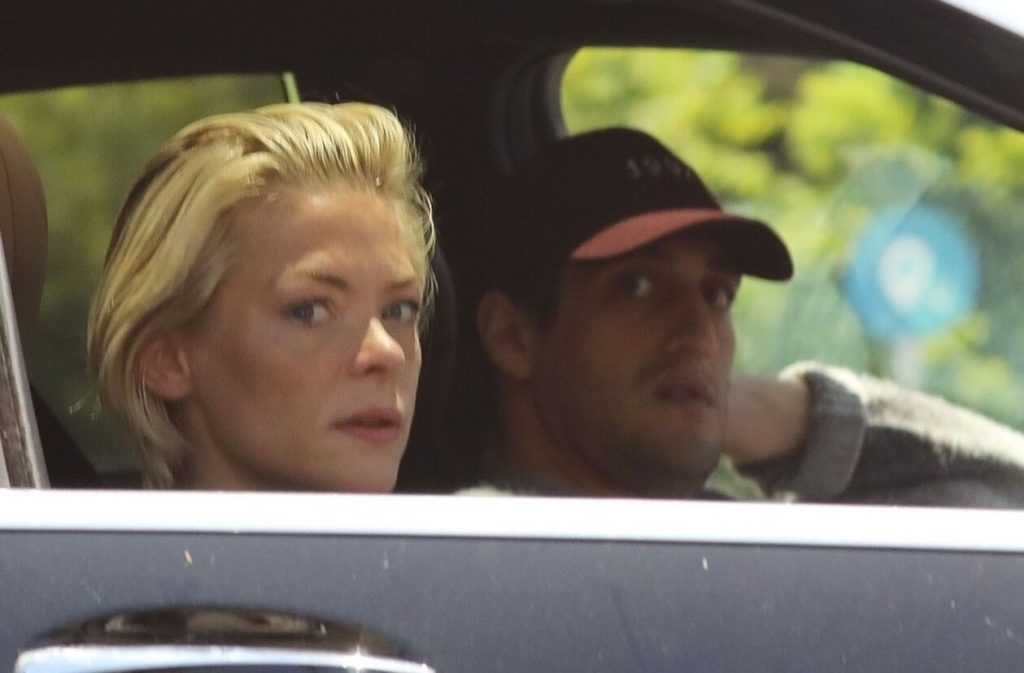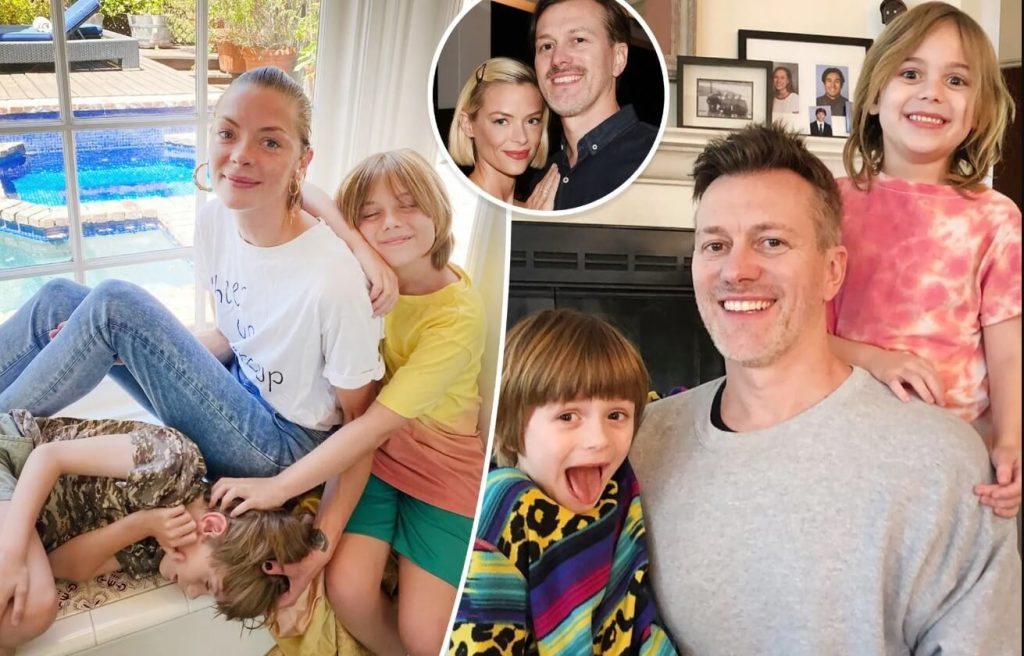In a sweeping ruling that deepens an already bitter custody battle, actress Jaime King has been stripped of physical custody of her two sons in favor of her ex-husband, filmmaker Kyle Newman. The decision—comprising several stringent conditions—requires King to complete a six-month drug and alcohol rehabilitation program among other mandated treatment measures before she can regain any unsupervised visitation rights with her children.
A Troubled History and Contentious Legal Battle

King and Newman, who tied the knot in 2007 in Los Angeles, shared 13 years of marriage before King filed for divorce in May 2020. Their split was marred by a series of legal disputes, including allegations of domestic violence and a turbulent custody struggle. Over the years, both parties have leveled serious accusations against one another. King, for instance, has sought to modify a spousal and child support agreement—citing financial difficulties—while Newman has persistently alleged that King’s alleged substance abuse has impaired her capacity as a parent.
The case has been a revolving door of legal motions and counter-motions. In one notable development in April 2024, King’s request to modify financial support arrangements was met with Newman’s claim that she had repeatedly failed to comply with existing court orders. Newman’s filings have painted King as a “chronic drug addict and alcoholic,” alleging that her behavior has compromised the children’s well-being and safety.
The Court’s Ruling: Custody, Supervision, and Rehabilitation

In the most recent ruling, while legal custody remains shared between King and Newman, the judge has awarded Newman sole physical custody of their sons—James and Leo. This arrangement means that the children will reside primarily with Newman, with King granted only supervised visitation rights. Under the court’s directive, King is allowed to see her sons three times a week during designated hour blocks. However, all visits must be closely monitored by a predetermined list of approved supervisors that includes family members such as her mother, sister, and brother-in-law, as well as Newman’s brother Kevin.
The judge’s decision hinges largely on concerns regarding King’s ongoing struggles with substance abuse. As part of the custody settlement, King is required to complete a comprehensive 6-month drug and alcohol rehabilitation program. In addition to this rehab program, the court order mandates that she adhere to weekly testing, participate in an aftercare plan, complete a 2-step program, and undergo a 26-week parenting course. Further, she must receive individual counseling—and, if deemed necessary by the therapist, conjoint counseling sessions with her sons—to address issues affecting her parenting.
These stringent conditions reflect the court’s commitment to ensuring that the children’s safety and well-being remain paramount while also providing King with an opportunity to seek help and potentially rebuild her parental rights in the future.
Allegations Fueling the Custody Dispute

At the heart of the legal dispute are serious allegations made by Newman. He contends that King’s alleged substance abuse extends beyond isolated incidents, recounting multiple instances of erratic behavior. According to Newman’s filings, King was at times so intoxicated that she endangered the children’s safety by driving under the influence, neglecting their needs for days on end, and even leaving one of the boys unattended at a doctor’s appointment while she was seen purchasing alcohol nearby. Newman’s claims extend to allegations that King’s substance abuse affected her during pregnancy—reportedly putting both sons at risk, with one appointment revealing that unborn son Leo suffered from a congenital heart defect potentially linked to her drug use.
In stark contrast, King and her legal team have dismissed these claims as part of a “false narrative” intended to tarnish her reputation and undermine her parental rights. Her attorney, Diana D. Hagopian, has argued that the allegations are exaggerated and that King is committed to working through her personal challenges in a bid to re-establish a stable relationship with her children. King herself has, in previous legal filings, pointed to an intervention staged by Newman as evidence of his heavy-handed approach, noting that past drug tests had not revealed any substances in her system.
Implications for the Family and Future Prospects

The latest ruling is poised to have significant implications for both the children and their parents. With Newman now holding sole physical custody, he gains the final say in any legal matters concerning the children, a shift that could impact decisions on education, healthcare, and other major aspects of their upbringing. Meanwhile, King’s future interactions with her sons are now contingent on her strict adherence to the court-mandated rehabilitation and treatment programs.
While the court has provided a structured path for King to eventually regain unsupervised visitation, it remains to be seen whether she will be able to meet these rigorous requirements. The arrangement, although aimed at protecting the children, leaves the door open for King to rebuild her parental rights provided she demonstrates sustained progress in her recovery efforts.
The legal battle has also spotlighted the complex interplay of personal struggle and public scrutiny that often accompanies high-profile custody disputes. Newman’s insistence that his actions are solely motivated by a desire to ensure stability for the children is counterbalanced by King’s insistence that she is more than the sum of her past challenges. In an environment where every misstep is magnified, the path to reconciliation—and potentially, shared custody—appears fraught with both legal and personal obstacles.
Looking Ahead: Challenges and Potential Repercussions
As King embarks on her rehabilitation program, the long-term impact on the family remains uncertain. Child welfare advocates emphasize the importance of both parents being actively involved in a child’s life, noting that strict legal arrangements should ideally be temporary measures designed to pave the way for eventual reunification under safer conditions.
For now, Newman’s legal victory in obtaining sole physical custody marks a significant shift in the family dynamic. The decision is expected to have lasting repercussions, influencing not only the immediate care of the children but also the broader narrative around King’s personal challenges and the intense public interest in celebrity custody battles.
In the coming months, all eyes will be on King as she navigates the rigorous requirements imposed by the court. Should she succeed in completing the mandated programs and demonstrate consistent sobriety and improved parenting capabilities, there remains a possibility for revisiting the terms of visitation. Until then, the well-being of James and Leo remains the court’s primary concern, with the current custody arrangement designed to offer them a stable environment during an extraordinarily tumultuous period.
This unfolding legal saga highlights how personal struggles, when interwoven with legal disputes, can dramatically affect family dynamics. With the children’s best interests at the forefront, both parties face the formidable challenge of balancing personal redemption with the demands of a high-profile custody case that continues to captivate public attention.

